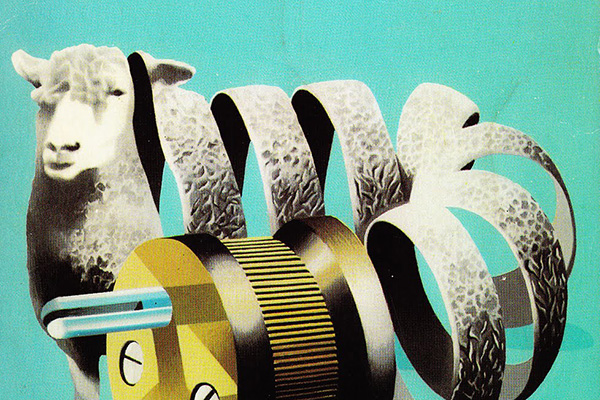Do androids dream of electric sheep?
By Philip K. Dick
Earth, post-World War Terminus, has been swathed in radioactive dust causing the eventual death of many species we have today. Most people have been evacuated from Earth, but a few undesirables remain interspersed amongst androids, which are indistinguishable from their human counterparts. Despondency is rife among the scarce human populace because of their morbidly depressing surroundings. Luckily, for the humans of his novel, happiness is a click away thanks to the presence of mood organs, which allow you to experience any sensation you desire. For instance, you can dial an “888,” which prompts the desire to watch TV no matter what’s on. (Surely, this setting is somewhat redundant due to the lack of activities offered on earth after nuclear disaster?)
A restless, irresolute bounty hunter named Rick Deckard drives the plot as he seeks to “retire” androids; “retire” being a thin euphemism that could easily be substituted with “destroy” or “kill.” Rick’s greatest ambition is to own a real animal, which is the ultimate status symbol. He cares for an electric pet sheep that he pretends, for the sake of his own dignity, is alive. After years as a bounty hunter, Rick Deckard begins to be plagued by an internal philosophical crisis. Due to the brutality of his job, Rick begins to reconsider whether empathy should be extended to androids. This novel cleverly forces us to question what is real and what is a carefully constructed artificial illusion. A classic instance of this bewilderment occurs when Deckard is accused of being an android. I would say “spoiler alert,” but I feel this was a fairly predictable progression of the story as Rick enters the novel as a highly pragmatic and somewhat selfish individual.
Running parallel to the story of Rick are the mishaps of John Isidore, a human whose IQ is too low to meet the requirements necessary to emigrate to a different colony. John, lonely and ostracised by many, attempts to give his life meaning by working a solid job (I am sure many post grads can relate to this humble aspiration). John works for a company that fixes electrical animals under the guise of a veterinary service so that owners, like Rick, can fool their neighbours into believing they own real live stock. Sadly, it is not always smooth sailing for John as he unwittingly allows a real cat to die, mistakenly believing it can be rewired later. This foreshadows much of the distress John suffers later. The way John is mistreated and manipulated by other characters forces the readers to consider how second-class citizens are created and wronged in everyday society. His story is particularly poignant and stirring because his compassion for all living things outshines that of the other characters.
The narrative style of this novel is clear, bold and easy to follow once you have accepted the jargon that’s inextricable from Philip K Dick’s futuristic vision of Earth. The premise of this story is interesting and there are a few quirks that generate a surreal quality. Personally, I was hoping for a more action packed story (perhaps the sporadic inclusion of a rabid zombie would have created the urgency I craved?) However, I must say, if you enjoy science fiction and contemporary American fiction, Philip K. Dick is an author you cannot go past.







